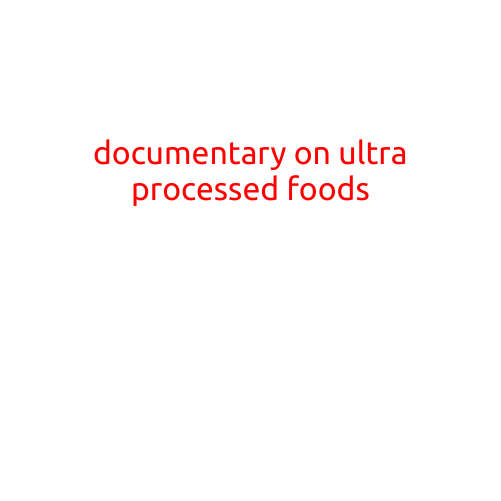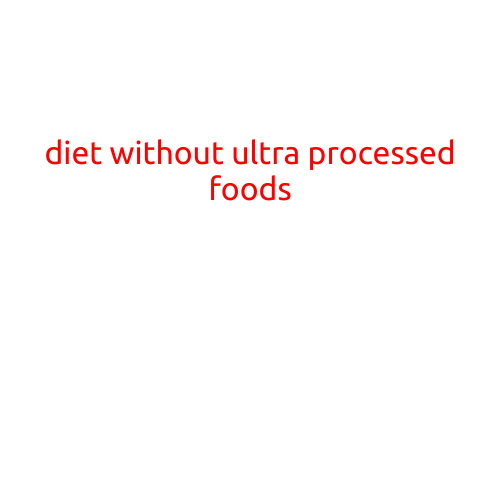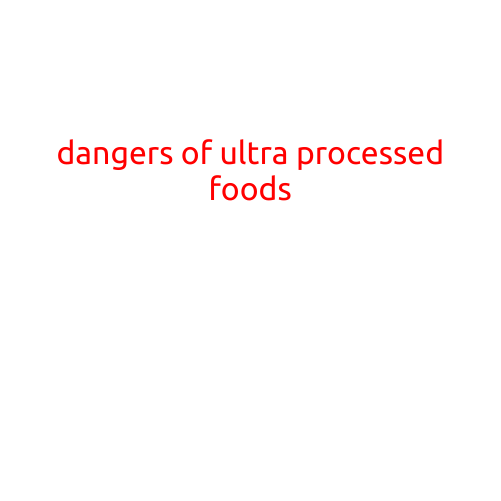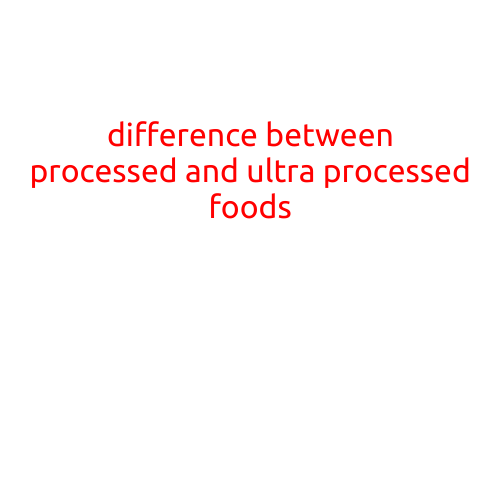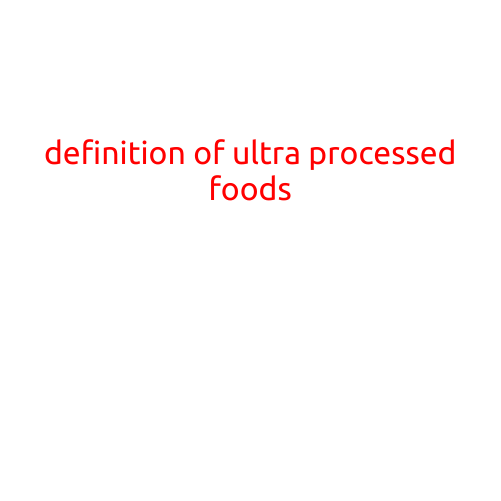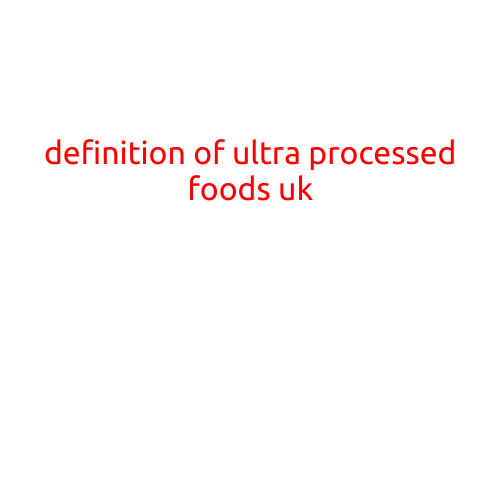
Definition of Ultra-Processed Foods UK: Understanding the New Standard
In the United Kingdom, the definition of ultra-processed foods has become a topic of increasing importance in the realm of public health. With the rise of processed and packaged foods in modern diets, the need to distinguish between different types of processed foods has become crucial. Ultra-processed foods, in particular, have been linked to various health problems, making it essential to understand what they are and how they impact our overall well-being.
What are Ultra-Processed Foods?
The term “ultra-processed” was coined by scientists from the French National Institute for Health and Medical Research (INSERM) and the University of São Paulo in Brazil. According to the original definition, ultra-processed foods are products that have undergone significant processing, often to the extent that they contain few or no whole foods in their composition.
To be classified as ultra-processed, a food must meet at least two of the following criteria:
- Starches and sweeteners: The food contains added sugars, honey, or sugar syrups, or starches derived from potatoes, rice, or corn.
- Oils and fats: The food contains added vegetable oils or animal fats, such as palm oil, coconut oil, or butter.
- Flavour enhancers: The food contains added flavour enhancers, such as monosodium glutamate (MSG), yeast extract, or aspartame.
- Colours and moulds: The food has additives that impart colour or texture, such as artificial colours, flavourings, or preservatives.
- Texturisers: The food contains additives that change its texture, such as gelling agents, emulsifiers, or whipping agents.
- Reconstituted meat and fish: The food contains meat, fish, or poultry that has been reconstituted from mechanisms other than natural processes (e.g., using meat juices, trimmings, or concentrates).
- Fermenting or dehydrating: The food is subjected to fermentation or dehydration processes, such as extrusion, texturisation, or freeze-drying.
Examples of Ultra-Processed Foods in the UK
Some common examples of ultra-processed foods found in UK supermarkets and everyday diets include:
- Frozen meals, such as TV dinners or pizza
- Packaged snacks, like crisps, chocolates, or biscuits
- Processed meat products, including sausages, ham, or hot dogs
- Ready-to-eat breakfast cereals, such as muesli bars or sugared cereals
- Sugary drinks, like energy drinks or sweetened yoghurt
- Refined grains, such as white bread or white pasta
Health Concerns Linked to Ultra-Processed Foods
Research has shown that regular consumption of ultra-processed foods can lead to various health problems, including:
- Weight gain and obesity
- Increased risk of diabetes and cardiovascular disease
- Negative impact on gut health and microbiome
- Higher incidence of allergies and immunological disorders
- Possible links to depression, anxiety, and other mental health issues
Conclusion
When it comes to understanding the definition of ultra-processed foods in the UK, it is essential to recognize the characteristics that distinguish these foods from others. By knowing what ultra-processed foods are and how they differ from naturally processed or whole foods, consumers can make informed choices about their diet and contribute to a healthier, more balanced lifestyle.
In a world where convenience and accessibility are key, it is crucial to be aware of the potential health consequences of ultra-processed foods. By promoting a culture of healthier eating habits and increased awareness about ultra-processed foods, we can work towards a healthier UK population, one meal at a time.
